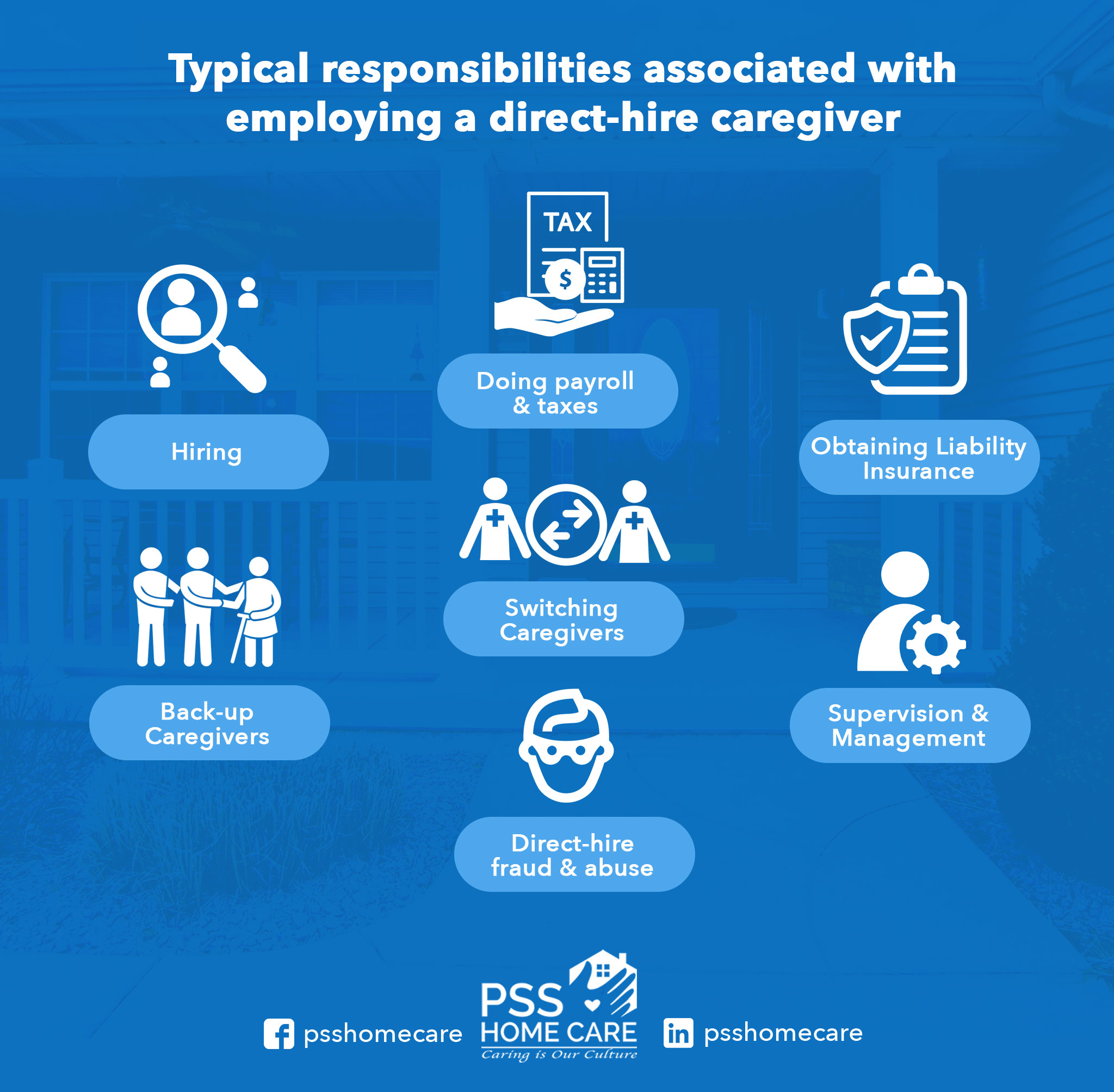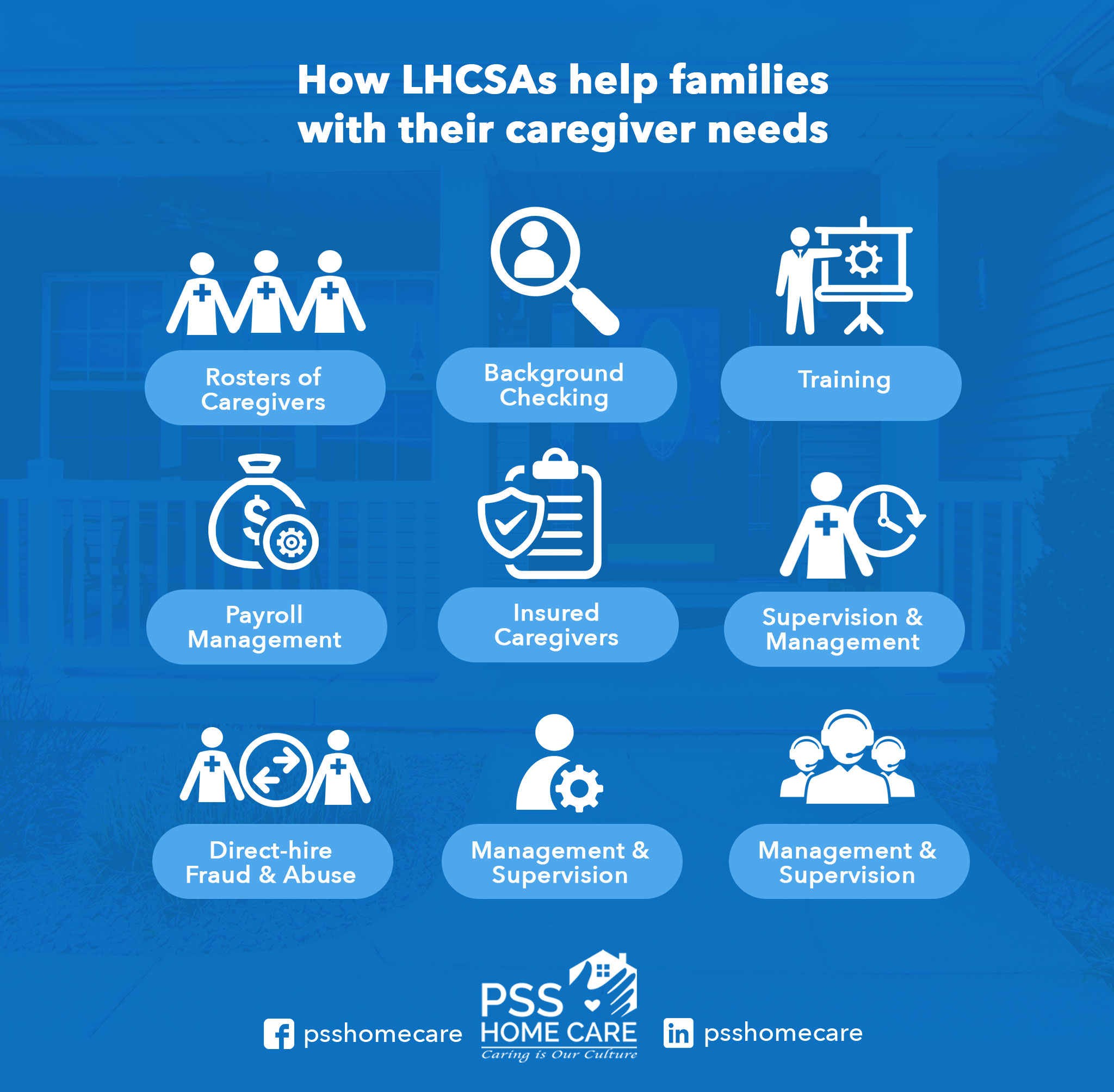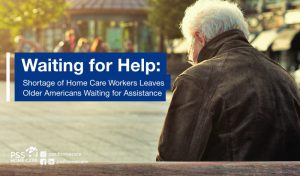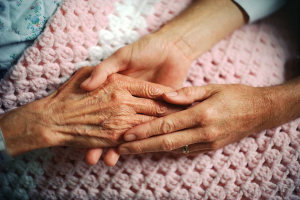Waiting for Help: Shortage of Home Care Workers Leaves Older...
Read MoreHow Can a Licensed Home Care Agency Help You?
Finding the right person to properly take care of someone near and dear to you is difficult. It can also be emotionally overwhelming. This is especially true when families opt to find caregivers on their own.
For Joan, who worked a full-time job in the city and tended to her family (and a rowdy Golden Retriever), the experience of looking for a caregiver was not something she thought would be laborious at first.
“At that time, I approached the task of looking for someone to care for my mother as almost an enjoyable activity. And I think, in the beginning, it surely was. I love meeting new people. So I enjoyed talking with different caregivers and learning about who they are. But I just wasn’t prepared for the amount of work involved in the whole thing,” shared Joan.
“Looking back, had I known what it takes, I would have sought help from the get-go,” she added.
The following are what families usually experience when hiring a caregiver on their own.
Typical responsibilities associated with employing a direct-hire caregiver
-
Hiring.
The hiring process starts with the screening of a potential caregiver candidate. But before the screening process can even begin, families need to look for possible candidates. These can be referrals from friends or newspaper or social media ad postings.
After the initial screening, families would need to meet the candidates in person. This is to ask several important questions as well as set proper expectations. This is how families would typically know whether their elderly loved ones’ specific needs and particular care preferences can be provided by a direct-hire caregiver.
Looking for the right person can present certain challenges. Especially when families find themselves screening, interviewing, and selecting a caregiver from a long list of applicants. Aside from these, families need to vet previous work experiences, skills level, former roles, and responsibilities. Even performing thorough background checks for red-flag cases. Depending on the varying levels of needs, families might opt for a professionally trained and licensed caregiver. Which may be more difficult to find.
-
Doing payroll and taxes.
Once a caregiver is hired, the family serves as his or her employer and will assume all the responsibilities associated with being one. This includes ensuring that the caregiver’s salary is paid regularly and on time and that all necessary taxes are applied or deducted. It’s important to note that caregivers are classified as employees and not as independent contractors, according to tax and labor laws.
-
Obtaining liability insurance.
Direct hire caregivers usually don’t have their liability insurances, which is important in case of workplace-related accidents. Hence, it is the responsibility of employers to obtain liability insurances for their direct-hires.
-
Back-up caregivers.
At times, emergencies arise, causing your caregiver to miss shifts or days at work. When this happens, you would need to find one or two back-up on-call caregivers to help keep the company of your loved ones.
-
Switching caregivers.
When things don’t work out with your current caregiver for any reason, you would need to find a new one as quickly as possible. Aside from the challenges of finding one fast, having a new caregiver would also mean that you’d need to go back to square one, getting to know a new caregiver.
-
Supervision and management.
Throughout the day and the whole duration of your caregiver’s employment, you will need to manage your caregiver’s schedule and supervise the plan of care your caregiver will provide your loved one.
-
Direct-hire fraud and abuse.
More often than not, the responsibility of looking for a caregiver is just one of the many urgent responsibilities you are juggling. This means that as much as you’d like your background check to be as accurate and as thorough as you’d like, it may not be enough, which may, unfortunately, lead to caregiver fraud.
Because of the many responsibilities associated with finding the perfect caregiver, families who are looking to find professional assistance for their loved ones can seek help from licensed home care agencies (LHCSAs). LHCSAs provide a wide variety of services meant to provide assistance ranging from a few hours per day to full-time, 24-hour care.

RELATED READING: What is a Licensed Home Care Agency?
“As my mom’s dementia continued to progress, and as life continued to move forward for my own family, I decided to seek help from a home care agency. And it’s exactly what my mom and my family needed. I’m so glad I took this route,” remarked Joan.
How a Licensed Home Care Services Agency helps families with their caregiver needs
-
A roster of caregivers.
Home care agencies have a wide pool of caregivers with different skills and specializations that can cater to your loved one’s specific needs. LHCSAs go through the process of sourcing and hiring caregivers and employees.
-
Background checking.
LHCSAs perform thorough background checks of all its employees through a series of online and phone checks.
-
Training.
Home care agencies provide regular training for their employees. so you are sure they have skilled and capable caregivers.
-
Payroll management.
Home care agencies which usually have their team of professionals who handle employee payroll and benefits, take care of the salaries and taxes of its caregivers.
-
Caregivers insurance.
Licensed home care agencies must have liability insurance coverage for their caregivers. In case of any accidents, expenses will be covered.
-
Caregiver availability.
At times, your loved one’s regular caregiver is not available to cover a shift. LHCSAs will be able to provide caregivers to cover them. They can provide caregivers who have the same skillset. As well as those who possess qualities that may be a good fit for your loved ones.
-
Ease of switching.
If you don’t feel that your caregiver isn’t the best match, you can request a different caregiver. A home care agency should be able to provide one for you with a relatively quick turnaround.
-
Management and supervision.
LHCSAs manage and supervise caregivers, providing families freedom and peace of mind.
-
Full team support.
With LHCSAs, you have the support of a whole team of professionals. They have care team managers, schedulers, nurses, payroll staff, and others, to answer any questions and concerns you may have.

“Having had experienced hiring direct and getting help from a home care agency like PSS Home Care, I have seen and felt a big difference. Not just for me, who used to be in charge of everything including schedules and payroll. But the biggest difference I saw was in my mom’s care. Today I am confident that she’s being taken care of by full-time caregivers who are absolutely lovely — they know exactly what they’re supposed to do. I’ve grown to trust and appreciate them,” shared Joan.
Check out our other articles
Benefits of Hiring a Caregiver through an Agency
Benefits of Hiring a Caregiver through an Agency The Decision...
Read MoreA Woman’s Guide to Life After Menopause
A Woman’s Guide to Life After Menopause Menopause, which occurs...
Read MoreStrengthen Muscles, Avoid Falls
Strengthen Muscles, Avoid Falls: Why Older Individuals Need Exercise, Proper...
Read More



